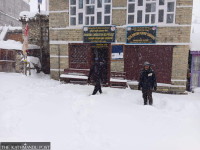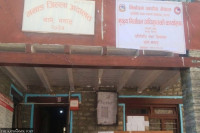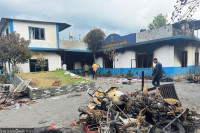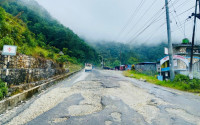Gandaki Province
Gandaki Province is not using time it bought with prohibitory orders, health officials say
Local units have rushed to impose restrictions while the provincial government has failed to strengthen health facilities.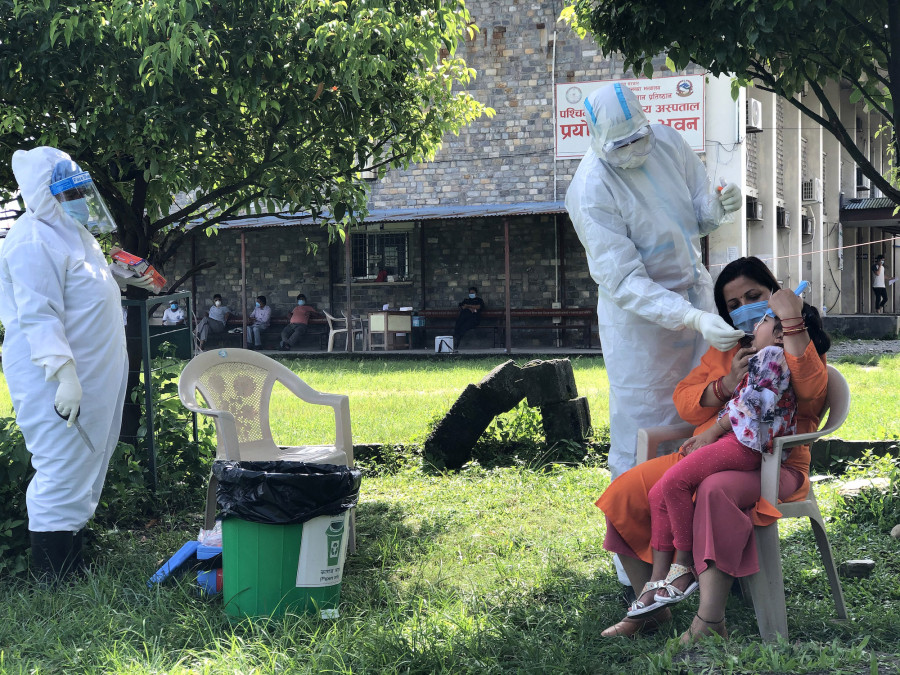
Deepak Pariyar
Shamsher BK of Nayagaun, owns a clothing store at Prithvi Chowk in Pokhara. The 45-year-old has a family of five to look after but the Covid-19 pandemic has severely curtailed his income.
The nationwide lockdown followed by protracted prohibitory orders have forced BK to close his shutters for more than four months now.
“I had some hope of conducting business after the lockdown was lifted. But it was soon followed by a prohibitory order. Now, with my store shut, my source of income has dried up,” said BK. “With money fast running out, it’s becoming increasingly difficult to take care of my family.”
Gandaki Province was one of the first provinces to ease the nationwide lockdown. As Chief Minister Prithivi Subba Gurung was in favour of reopening, Gandaki Province had resumed operations of its industries, factories and construction projects well before other parts of the country.
However, after the lockdown was formally lifted on July 21, there was a sudden spike in Covid-19 cases all over the country, including in Gandaki Province. By the first week of August, most districts and local units in the province had imposed prohibitory orders to curb the coronavirus spread. Local units in Syangja, Tanahun, Nawalpur, Baglung and Lamjung districts have either extended or reimposed prohibitory orders that were put in place earlier in the month.
Before the local units upped the restrictive measures, Gandaki Province had witnessed 117 new infections in a span of one week between August 12-18. Five days into the prohibitory orders, the province reported 115 new cases.
Although the number doesn’t point at an exponential increase in Covid-19 infections, the infection curve has not flattened either and the government does not have any concrete plans once the prohibitory orders come to an end.
Public health experts condemn the local units’ rushed decision to impose prohibitory orders and the provincial government’s inability to utilise the time the restrictive measures have bought them in the past month.
Chairman of the Gandaki chapter of the Nepal Public Health Association, Santosh Poudel, believes that issuing prohibitory orders and restricting public way of life has not contributed to de-escalation of the virus threat.
“The only solution to the pandemic according to the government is imposing lockdowns and prohibitory orders,” said Poudel. “The government, as of yet, has not taken any concrete steps to formulate plans to minimise the rate of infections in the province.”
“The government has been whiling away the time it has bought. The government’s move to extend the prohibitory orders without introducing other measures to help curb the spread of the virus underlines its ineptitude in understanding the pandemic situation,” said Poudel. “The government should use these lockdown periods to expedite mass tracing and testing but no such steps have been taken so far.”
Meanwhile, the provincial government has also failed to strengthen health facilities in the province to handle Covid-19 cases. According to the Provincial Health Directorate, 176 intensive care unit beds set up for the treatment of Covid-19 patients across hospitals in the various districts are reaching their capacity.
As of Tuesday, all 16 intensive care unit beds in Tanahun District Hospital were occupied.
Province Health Director Dr Binod Bindu Sharma informed that the government is working towards increasing the number of ICU beds and ventilators in hospitals across the districts.
“As of now, we are conducting tests on samples of people placed in quarantine,” said Sharma. “At the same time we are training health workers on how to collect swab samples and we are also putting up additional ICU beds and ventilators.”
Poudel from Nepal Public Health Association says that the administrative works being carried out by the government can be done even without imposing prohibitory orders.
“The government does not need to impose prohibitory order to either increase the capacity of beds in a hospital or to train health workers,” said Poudel. “Our provincial government needs to focus on formulating a plan to conduct smart contact tracing, testing and isolating positive cases, which is the only way to control the disease.”
Shambhu Prasad Gyawali, chief at the Policy, Law, Criteria, Planning and Public Health Division under the provincial Social Development Ministry, also agrees that only issuing prohibitory orders will not help control the disease.
“Prohibitory orders cannot be the only option to control the spread of the disease,” said Gyawali. “Resuming daily life by strictly following the public health protocols is the only way to ensure that the disease is contained and people don’t suffer.”
But for people like BK, the only option is to adhere to the government-issued orders and wait for the storm to pass.
“If the prohibitory order is extended again, I may have to close down my shop for good,” said BK.
Prohibitory orders were imposed in Kaski on August 18 for five days. The order has been extended for another five days until August 28.
As of Tuesday, the province has recorded 1,913 Covid-19 infections. Of them 1,643 people have recovered from the disease while eight people have died due to Covid-19 related complications.




 18.12°C Kathmandu
18.12°C Kathmandu.jpg)
